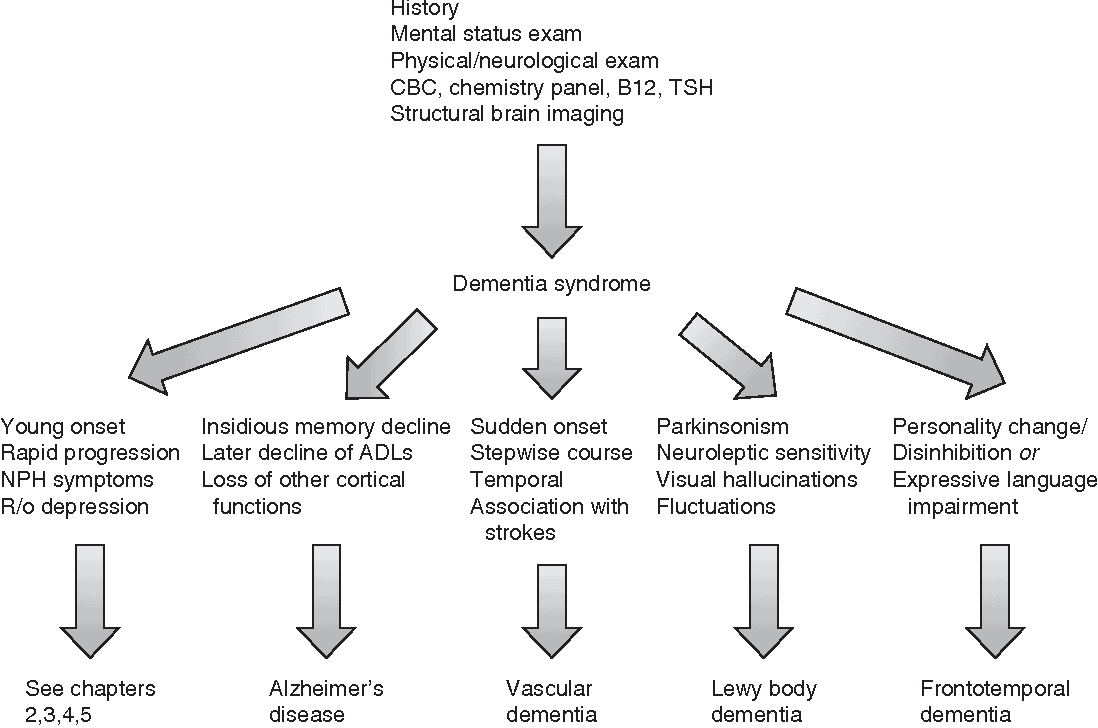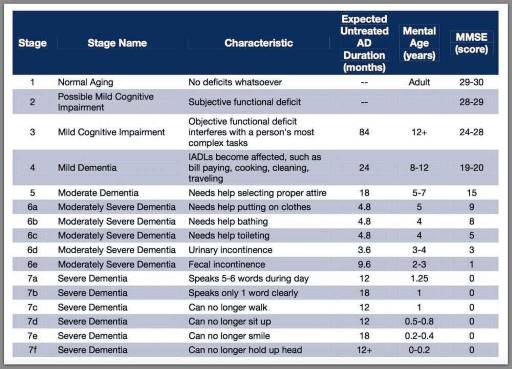Hospice Eligibility for Diverse Dementia Diagnoses
Published on May 13, 2024
Updated on September 5, 2024
Published on May 13, 2024
Updated on September 5, 2024

Table of Contents
It’s crucial to understand the nuances of hospice eligibility for diverse types of dementia. Each form of dementia, such as Alzheimer’s disease and other related conditions, may have specific criteria that determine when a patient is eligible for hospice care. Let’s explore the key differences and criteria to help you confidently navigate these situations.

Alzheimer’s disease is a brain disorder that affects memory, thinking, and behavior. It is the most common cause of dementia, which is a general term for a decline in mental abilities that interferes with daily life. Alzheimer’s disease gets worse over time and has no cure.
One way to measure how Alzheimer’s disease affects a person’s function is to use the Functional Assessment Staging (FAST) scale. This scale has seven stages describing the impairment level in different areas of daily living, such as dressing, eating, and speaking. The FAST scale can help hospice nurses determine if a patient with Alzheimer’s disease is eligible for hospice care, which focuses on comfort and quality of life for people with terminal illnesses.
Stage 7 on the FAST Scale: Patients with Alzheimer’s disease who have reached Stage 7 on the FAST scale are typically considered eligible for hospice care. This stage is the most severe and indicates that the patient has lost most of their abilities to function independently. Patients at this stage may have the following symptoms:
Hospice nurses should be aware of these symptoms and provide compassionate care to patients with Alzheimer’s disease in the terminal stage. Hospice care can help patients and their families cope with the physical, emotional, and spiritual challenges of this terminal stage.
Dementia is not a single disease but a term that describes a range of symptoms that affect a person’s memory, thinking, and behavior. There are many different causes and types of dementia, and each one may have different effects on a person’s function and quality of life. Some of the most common types of dementia, besides Alzheimer’s disease, are:
Because these types of dementia have different causes and symptoms, they may also have different criteria for hospice eligibility. Hospice care is a special kind of care that provides comfort and support to people who have a life-limiting illness and a prognosis of six months or less. Hospice care can help patients and their families cope with the physical, emotional, and spiritual challenges of living with a terminal illness. Here are some factors to consider when determining hospice eligibility for patients with other forms of dementia:
It is important to remember that hospice eligibility is not based solely on a specific diagnosis but rather on the overall decline in the patient’s health, functional limitations, and the progression of their illness. Each patient is unique and deserves individualized care and attention. Collaboration with the interdisciplinary hospice team, including physicians, nurses, social workers, and other healthcare professionals, is essential in making well-informed and compassionate decisions. Hospice nurses should respect the dignity and wishes of patients with different types of dementia and help them have a peaceful and comfortable end of life.
As a hospice nurse, you have a unique and significant role in caring for patients with dementia and their families. You are not only a skilled clinician but also a compassionate communicator and a strong advocate. Your clinical judgment and communication skills are essential in assessing and supporting the eligibility of patients with dementia for hospice care. Here are some key points to keep in mind:
As a hospice nurse, you can make a positive difference in the lives of patients with dementia and their families. Using your clinical judgment and communication skills, you can help them access hospice care, providing comfort, dignity, and peace at the end of life.
Dementia is a severe and life-limiting condition that affects millions of people around the world. Hospice care can provide comfort and support to patients with dementia and their families at the end of life. However, determining hospice eligibility for patients with dementia can be challenging and complex, as different types of dementia have different criteria and symptoms. As a hospice nurse, you play a vital role in assessing and advocating for the eligibility of patients with dementia. By using your clinical judgment, communication skills, and functional assessment tools, you can help patients with dementia access hospice care and improve their quality of life. Hospice care can also allow you to make a positive difference in the lives of patients with dementia and their families and provide them with dignity, peace, and compassion.
Global Deterioration Scale (GDS)
Understanding Changes in Palliative Performance Scale in the Last Six Months of Life
The Mini-Mental State Examination (MMSE)
Holistic Nurse: Skills for Excellence book series
Empowering Excellence in Hospice: A Nurse’s Toolkit for Best Practices book series
Tips for Hospice Nurses – Numerous Articles
How to read and apply the FAST Scale to stage any type of dementia. Dementia Staging Made Easy. (Video)
Understanding Dementia (Alzheimer’s & Vascular & Frontotemporal & Lewy Body Dementia) (Video)
How Do I Know Which Dementia I’m Looking At? (Video)
Geri-Gadgets – Washable, sensory tools that calm, focus, and connect—at any age, in any setting
Dementia Training material (Free)
Promoting Meaningful Relationships with Dementia Patients through Validation Therapy
Unlocking the Power of Validation Therapy in Compassionate End-of-Life Care
Validation Therapy: A Valuable Tool for Families and Healthcare Teams
Best Practices for Approaching Combative Dementia Patients
Dementia Insights: The Validation Method for Dementia Care
How Do I Know You? Dementia at the End of Life
Sundown Dementia, Vascular Dementia and Lewy Body Dementia Explained
Ahead of Dementia: A Real-World, Upfront, Straightforward, Step-by-Step Guide for Family Caregivers
Dementia Care Companion: The Complete Handbook of Practical Care from Early to Late Stage
How to read and apply the FAST Scale to stage any type of dementia. Dementia Staging Made Easy
📚 This site uses Amazon Associate links, which means I earn a small commission when you purchase books or products through these links—at no extra cost to you. These earnings help me keep this website running and free from advertisements, so I can continue providing helpful articles and resources at no charge.
💝 If you don’t see anything you need today but still want to support this work, you can buy me a cup of coffee or tea. Every bit of support helps me continue writing and sharing resources for families during difficult times. 💙
Geri-Gadgets – Washable, sensory tools that calm, focus, and connect—at any age, in any setting
Dementia Caregiver Essentials: Comprehensive Guide for Dementia Care (one book that contains the ten books below for less than one-third the price of all ten)
Dementia Home Care: How to Prepare Before, During, and After
DEMENTIA DENIED: One Woman’s True Story of Surviving a Terminal Diagnosis & Reclaiming Her Life
Atypical Dementias: Understanding Mid-Life Language, Visual, Behavioral, and Cognitive Changes
Fading Reflection: Understanding the complexities of Dementia
Ahead of Dementia: A Real-World, Upfront, Straightforward, Step-by-Step Guide for Family Caregivers
Four Common Mistakes by Caregivers of Loved Ones with Dementia and What Do Differently (video)
Articles on Advance Directives
CaringInfo – Caregiver support and much more!
The Hospice Care Plan (guide) and The Hospice Care Plan (video series)
Surviving Caregiving with Dignity, Love, and Kindness
Caregivers.com | Simplifying the Search for In-Home Care
Geri-Gadgets – Washable, sensory tools that calm, focus, and connect—at any age, in any setting
Healing Through Grief and Loss: A Christian Journey of Integration and Recovery
📚 This site uses Amazon Associate links, which means I earn a small commission when you purchase books or products through these links—at no extra cost to you. These earnings help me keep this website running and free from advertisements, so I can continue providing helpful articles and resources at no charge.
💝 If you don’t see anything you need today but still want to support this work, you can buy me a cup of coffee or tea. Every bit of support helps me continue writing and sharing resources for families during difficult times. 💙
VSED Support: What Friends and Family Need to Know
Take Back Your Life: A Caregiver’s Guide to Finding Freedom in the Midst of Overwhelm
The Conscious Caregiver: A Mindful Approach to Caring for Your Loved One Without Losing Yourself
Everything Happens for a Reason: And Other Lies I’ve Loved
Final Gifts: Understanding the Special Awareness, Needs, and Communications of the Dying